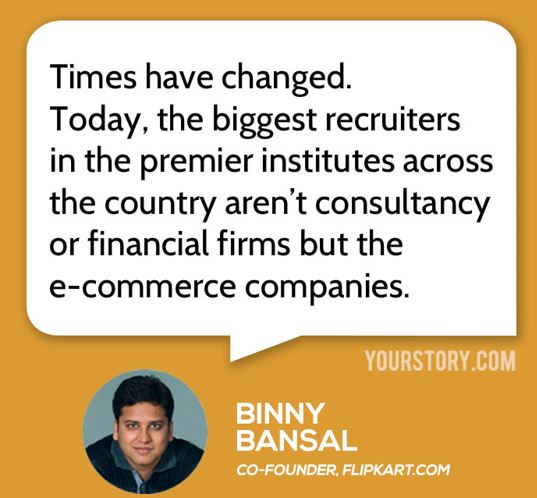Startups and Community Benefit
Startups and Community benefit complement each other. Startups in India are surprisingly by persons below thirty-five years of age. They are creating employment opportunities for their younger fellow countrymen.
India’s demographic profile shows 50% of the population is below 30 years and thus there is a dire need by the economy to create employment opportunities for this age group.
These startups are referred to as new economy businesses. The skill sets required for this new economy jobs are different and reskilling is a necessity.
“We have it in our power to begin the world over again.” – Thomas Paine

Image Source: janeb13-pixabay
Startups and Community Benefit-Job Creation
The biggest contribution of the startups, is creation of employment thus adding value to the community.
The following reports and the statistics prove startups have done yeomen service to the community.
The numbers are telling—from 3,100 startups in 2014 to a projection of more than 11,500 by 2020, this is certainly not a passing trend. It’s a revolution. And it’s going to change the way the markets are working today in India.
80,000 jobs were created by startups in 2015- NASSCOM Report
As per estimates of the talent assessment firm MeritTrac, the start-up ecosystem in India may hire 2.5 -3 lakh employees by 2020.
"Indian start up ecosystem is one of the fastest growing in the world. We are witnessing an unprecedented enthusiasm in the industry with respect to hiring for these startups," MeritTrac Innovations and New Products Development General Manager Rajeev Menon said.
The firm's research further showed that over 80 per cent of the job seekers are willing to get associated with start-ups.
Startup Landscape
Over 50 percent of the 1200 startups focus on e-commerce, consumer services and aggregators
Startups and Community Benefit- Preference of Youth
Studies conducted by HR consultants also showed that a vast majority of up to 80 per cent job aspirants prefer jobs at start-ups, as compared to already established companies.
Startups and Community Benefit- Attracting Capital
Data provided by Career Shapers HR Consulting showed that venture capital firms invested about USD 1.06 billion (Rs 6,600 crore) in over 244 startups, during 2014.
Middle Class Aspirations
Entrepreneurship was traditionally shunned by middle class and they were comfortable being an employee. However, this has changed due to favorable climate, success of individuals from non-business background.
Narayanamurthy and Kiran Mazumdar Shaw have become role models. The next generations of Bansals of Flipkart have further accelerated these aspirations.
Startups and Community Benefit- Level Playing Field-Technology
Startup is 'democratizing' business. Today, anyone with a good idea or capability can build a business. This is a surprising change from the past. There is a large pool of talent, awareness, guidance, funding and above all - a market where ideas can be experimented.
Technology has provided a platform for low cost startups. Online shopping for groceries, clothes, books etc. have helped in creating more jobs.
Real Estate
The e- commerce business has created need for warehouses and this has led to the boom in construction industry.
Iconic Cities and economic benefits
Infosys has impacted Bangalore and Alibaba has changed Hangzhou. What Google has done to Mountain View and how Microsoft transformed Redmond are case studies in themselves.
This has enabled a new breed of entrepreneurs providing infrastructure and logistical support. Restaurants have mushroomed in those cities.
This is a true ripple effect in creating more entrepreneurs.
Startups and Community Benefits- Wealth Creation
Many new millionaires have been born due to the IPO of these companies. The now famous Infosys driver’s value of shares exceeding a million is a sample. The new term High Net Worth Individuals (HNI) has come into existence.
Social Entrepreneurs
The HNI community is generously sharing their wealth in providing benefits like hospitals and education for the underprivileged. Some of them have turned venture capitalists to promote startups., They have contributed copiously to academic institutes ,research and development efforts.
Startups and Community Benefit-Real Life Examples

1.Flipkart
The Bansal’s have created an e- commerce platform directly competing with 800-million-pound gorilla Amazon.
Ø Turnover is $ 4 billion in2014 and aggressively pushing to double it in the coming years.
Ø Employs 33000+ directly and many more indirect jobs.
Ø 300,000 square feet of warehouse space in Bangalore.
Ø About 400 Flipkart employees with stock options have become millionaires in less than a decade
The Bansals’ success has spurred more aspirations in the society and many new entrepreneurs from middle class are in the horizon
2. Store King- Digital touch point for Rural India (Source: Company website)
Connects rural consumers to e-commerce
Revolutionary Platform enabling small town Retailers to sell over 50,000 products to walk-in customers
No investment in working capital stock
Leverages the use of modern low cost and low complexity technology
Kiosks equipped with low cost TV monitors and Android tablets
Provides simple self-service shopping experience to rural customers
Coveres 1200+ towns with 10,000+ stores.
3.Homemaker starts online portal business in a small town3.
4. Karimnagar Municipal town in Telangana State has a population of 261K.
In a first, Karimnagar has an online portal that sells vegetables, fruits and other food items. Edalla Vijayalaxmi, a housewife-turned Chief Executive Officer of Maanyamart, says several cities in the country have online vegetable markets.Vijayalaxmi’s aim is to provide more employment to youth and serve majority of customers in the town.
Startups and Community Benefit- Conclusion
The startup businesses have created a multiplier effect in the community. They are creating employment, new products, solving a few pressing society problems like affordable learning tools, solar energy etc.
Have created opportunities for middle class families to dream big. Indeed, it has become a level playing field for any member of society to become an entrepreneur.

